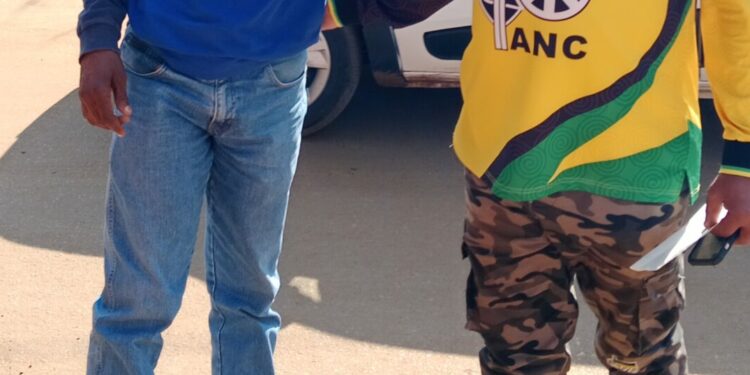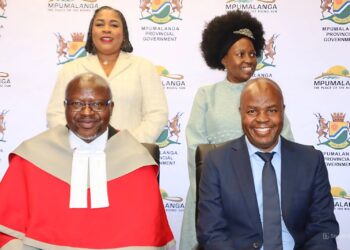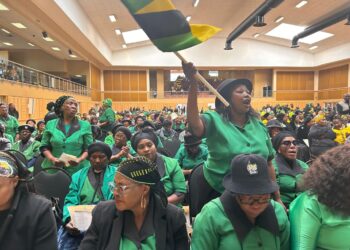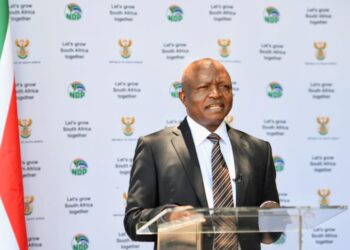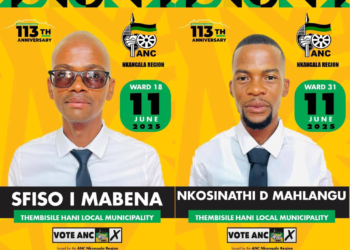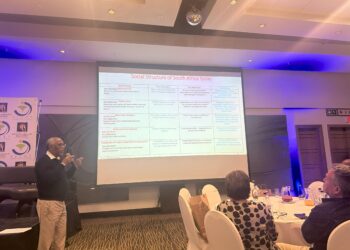ANC opts for a government of national unity to move beyond stalemate
SOUTH AFRICA – If former President Jacob Zuma’s statement is anything to go by, the Son of Man has already touched down in the country. Zuma, now leader of the MK party, asserted in 2016 during a door-to-door election campaign in Pretoria that the ANC would govern the country until the return of Christ. “People need to accept that the ANC would rule until Jesus Christ comes back,” he said.
The Independent Electoral Commission (IEC) officially announced the results of the elections held on May 29, 2024 on Sunday, June 2. The results signal a significant decline for the ANC, which has ruled since 1994, as it slipped below the 50% mark, garnering only 40.18%. The ANC lost 71 seats in Parliament from the 230 seats it held in 2019.
Zuma’s assertion echoes that of the former Mayor of Bushbuckridge municipality, Milton Morema, in 2008, who stated, “The ANC will rule this country until Jesus Christ comes back home,” at a rally in Acornhoek.
Given those bold statements, recent polls suggest that the second coming of Christ is upon us, as the ANC can no longer govern without forming coalitions. This necessitates teaming up with one or more parties to create a coalition government to support its decisions.
Now, the question on everyone’s mind is which parties the ANC will partner with in a coalition government.
EFF leader Julius Malema has publicly expressed a willingness to work with the ANC, albeit cautiously. “The ANC when compromised, is not arrogant. When the ANC doesn’t have absolute majority, and it happens that we share power with it, they won’t recover from losing power,” said the CIC.
“If we were to go into elections in the next two years, sitting at 40%, am sure they are going to come back with 15% because after loosing elections, they don’t do any effort to change some attitude. They are going to lose forever,” Malena boldly claimed.
DA leader John Steenhuisen has pledged to do everything possible to prevent the ANC from allying with parties like the EFF or MK. “These are the things contained in the manifestos of the EFF and MK Party. They amount to an all-out assault on the Constitution of our country. They will cause untold unemployment, misery and hardship for millions of people. Allowing this to happen will set South Africa’s flag and Constitution on fire, just like the DA warned during our campaign,” Steenhuisen said.
A source within the ANC has confirmed ongoing discussions with the Democratic Alliance since the election results. “The DA is not the only party the ANC has met with. They also held discussions with the Patriotic Alliance on 3 June,” the source said.
Patriotic Alliance (PA) leader Gayton McKenzie confirmed the meeting in a post on X.
It appears that coalition agreements might be South Africa’s only recourse following last week’s elections.
The ANC’s new rival, the MK party, formed in December last year, has secured 58 seats, while the DA increased its seats from 84 in 2019 to 87.
The ANC initially indicated that they couldn’t reach out to the MK for possible coalition talks before the MK announced, in a statement, their willingness to engage with the liberation movement. “A meeting is expected to take place soon, where the MK Party will hear the views presented with an open mind, while firmly prioritizing the inspirations and aspirations of the South African majority and blacks in particular.” In a surprising turn of events, the ANC announced on Thursday evening, as President Cyril Ramaphosa delivered the closing remarks from the National Executive Meeting (NEC), that, as the party with the majority of votes, they have opted to pursue a Government of National Unity rather than form a coalition. “A Government of National Unity is the most viable, most effective and most powerful way of meeting the expectations of all South Africans at this moment.” The leading party appeared confident that this approach would ensure representation for all South Africans, though it remains to be seen how other political parties will respond to the proposal while the EFF has already rejected the idea before formal announcement.
The EFF lost 5 seats from the 44 it gained in the previous general elections, and the IFP gained three additional seats, bringing its total to 17. Newcomers PA and ActionSA each secured nine and six seats, respectively, while Build One South Africa (BOSA) and Rise Mzansi each received two seats. The Freedom Front Plus (VF+) lost four seats, while the African Christian Democratic Party (ACDP) and the Good party each lost one. The UDM and ALJAMA each gained a seat, while the ATM maintained its two seats.











